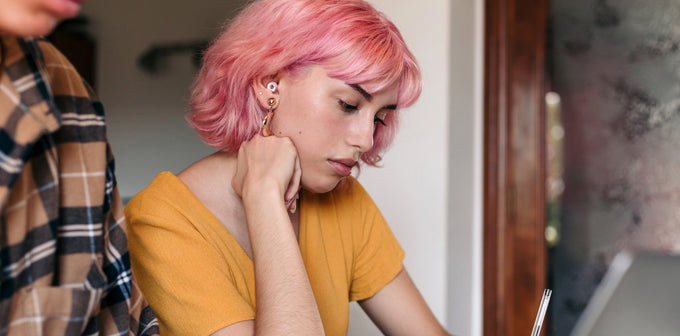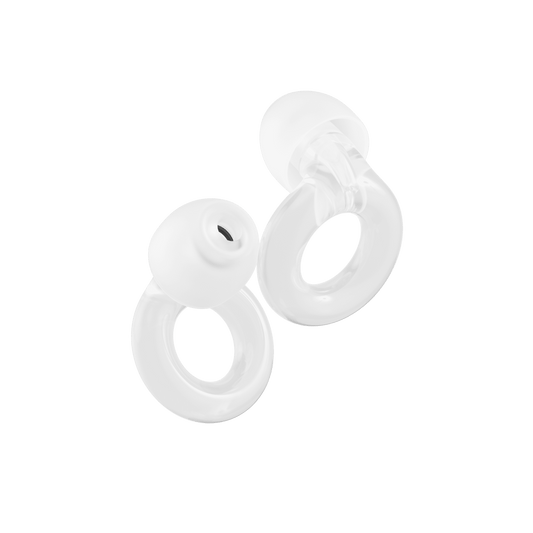Key takeaways:
- Phonophobia, a fear of noise, can cause overwhelming anxiety and panic, but it's distinct from other sound-related conditions like misophonia and hyperacusis.
- Coping strategies such as relaxation techniques, creating quiet environments, and using noise reduction tools like earplugs can help manage phonophobia in everyday life.
- Seeking professional help, including cognitive behavioral therapy and exposure therapy, is also essential for effective treatment.
- Supportive lifestyle changes, including regular exercise, proper sleep, and stress management techniques, can significantly alleviate symptoms and enhance well-being.
- Overcoming phonophobia is a gradual process that requires patience and perseverance, but with the right strategies and support, you can reclaim control and live fulfilling lives.
Phonophobia is a fear of noise. It’s a condition that can make people feel overwhelmed, panicked, and anxious when confronted with high volumes – especially sudden, sharp sounds. And in some extreme cases, people can even be triggered by the sound of their own voice.
People who suffer from phonophobia can experience unpleasant physiological and psychological effects such as anxiety attacks or heart palpitations when faced with sudden or unexpected loud sounds – or even the anticipation of loud sounds. Some other common symptoms include:
- Panic and anxiety attacks
- Excessive sweating
- Irregular or increased heartbeat
- Dizziness, unsteadiness, and lightheadedness
- An upset stomach and nausea
- Trembling or shaking
- Passing out
- An intense desire to escape
- Migraines
- An overwhelming fear of loud noise
But if you have an aversion to sound, it doesn’t automatically mean that you have phonophobia. There are other conditions that can cause discomfort around sounds, including misophonia (a hatred of specific sounds) and hyperacusis (sensitivity to sounds).
Whichever type of sound sensitivity you have, it can have a big impact on your life. But if it’s specifically a fear of loud noises that’s affecting your quality of life, then here’s how to deal with phonophobia.
Overcoming phonophobia in everyday life
Unfortunately, there is no quick and easy cure for being scared of loud noises. However, there are a number of ways that you can control and even reduce the effects of phonophobia.
Relaxation techniques
As phonophobia is often linked with issues such as anxiety and stress, sometimes the effects can be reduced by some simple relaxation techniques.
Meditation and yoga can go a long way toward giving you a sense of peace, calmness, and balance that can help subdue phonophobia, as well as improve your overall mental and physical health.
The practice of meditation can help you to find your center and bring about some level of inner peace – making it a key tool when battling phobias.
Create a safe, quiet environment
Noise reduction techniques such as using earplugs or noise-canceling headphones help minimize distractions and promote focus, especially in noisy environments like offices or public spaces. They can help to reduce sound levels, ensuring that auditory stimuli (from noisy traffic to barking dogs, and from coworkers chatting to the sound of the coffee machine) aren’t overwhelming, reducing stress and promoting a sense of calm.


When to seek professional help
Like with any phobia, getting help from a professional is the best way to get a handle on your phonophobia.
Fortunately, there are a number of different types of therapy that have shown positive results when being used to treat phobias. Let’s take a look at the two most common:
Cognitive behavioral therapy (CBT)
Cognitive behavioral therapy, or CBT, is a type of psychotherapy that concentrates on recognizing negative or unhelpful patterns of behavior and thought.
Known as a “talking therapy”, CBT can help you manage your issues by encouraging you to change the way that you handle certain situations.
It’s commonly used to treat conditions such as depression and anxiety, but it has also proved to be very effective in treating several different types of phobias, such as phonophobia.
The typical course of treatment for CBT consists of between six and 20, hour-long sessions. It is a treatment that concentrates on the here and now, rather than searching for a root cause in the past in the way that many other therapies do.
Exposure therapy
Exposure therapy, or systematic desensitization, is another type of psychotherapy that is regularly utilized when treating people with phonophobia.
It works by using guided and repeated exposure to the phobia in question in order to desensitize the patient. By being exposed to the source of the fear with no ill consequences, it is thought that exposure therapy can help the patient realize that their fear is unwarranted.
While this type of therapy can be upsetting, it’s also proved to be extremely effective with high success rates.
Don’t worry though – a therapist running an exposure therapy session will use a graded approach so that you’re not instantly overwhelmed.
So for example, if you are afraid of mice, the therapist may start a session just by showing you a drawing of a mouse. Then upping the exposure level as you become more and more desensitized to the stimuli.
Seeking professional help, whether it’s one of these therapies or counseling, is a good idea if you’re finding that phonophobia is taking over your life. If you’re scared or anxious to go outside for fear of encountering loud noises, it’s important to see a healthcare professional, who will be able to advise the best type of treatment for you.

Supportive lifestyle changes
Adopting a healthy lifestyle can help you to effectively manage your phonophobia in a few ways:
- Regular exercise not only promotes physical health but also releases endorphins, which act as natural mood lifters, reducing anxiety levels – something which can often contribute to symptoms of phonophobia.
- Proper sleep is essential for cognitive function and emotional regulation, helping you to cope better with triggers.
- A balanced diet rich in nutrients supports brain health, aiding in stress reduction and enhancing overall mental well-being.
Stress management techniques can also bolster resilience against phonophobia. Some ways to reduce stress include:
- Engaging in hobbies, which can provide a positive outlet for stress and redirect focus away from triggers.
- Practicing self-care rituals, which can help to foster self-compassion and relaxation, buffering against the impact of phonophobia-related stressors.
- Joining support groups to connect with others facing similar challenges. Building a strong support system can provide valuable emotional support and practical coping strategies.
From stress reduction to regular exercise, lifestyle changes can empower individuals to manage phonophobia more effectively and enhance their quality of life.
The role of noise reduction earplugs
It’s impossible to try and control every single element of the environment around you – but you can take measures to limit the volume of the noise that you are exposing yourself to.
And that’s where earplugs can play a key role.
While it’s true that overuse of earplugs can actually worsen the effects of phonophobia, when used in moderation or in special circumstances they can really make a world of difference.
Our earplugs reduce noise levels, allowing you to protect your ears in loud environments, which may help you to feel more comfortable – both about the presence of loud noises and about the possibility of hearing loud noises.
And if you’re concerned about experiencing the echoey occlusion effect, Loop Engage earplugs allow you to reduce noise whilst avoiding any echoey effects. That means you can take the edge off the world of sound whilst still staying present.
Overcoming phonophobia in specific situations
If you have phonophobia, then navigating social events, concerts and traveling can pose significant challenges. The prospect of these everyday occurrences might make you feel anxious – and that can lead to isolation. But one treatment for phonophobia is to adopt practical coping mechanisms to help you deal with loud noises. You could consider:
- Using noise-reducing headphones or earplugs to dampen loud noises
- Seeking out quiet spaces you can retreat to when you feel overwhelmed
- Communicating openly with your friends and family about your needs, ensuring they understand and can offer support when you need it.
Overcoming phonophobia may seem overwhelming at first – but you’re not alone. It may take time, but one great way to deal with phonophobia is to start small and celebrate small victories along the way. You could start by attending shorter or smaller gatherings, for example, and gradually increase your exposure to noise as your comfort levels begin to rise.
Remember, overcoming phonophobia is a gradual process, and setbacks are natural. Be patient and kind to yourself throughout the journey, focusing on gradual improvement rather than perfection. With perseverance and support, you can learn to manage phonophobia effectively, reclaiming control over their experiences and enjoying life to the fullest.
10M+ happy customers
Our earplugs
Final thoughts
Overcoming phonophobia requires a multifaceted approach centered on proactive lifestyle changes and practical coping strategies – as well as input from your healthcare provider to determine the best phonophobia treatment for you.
In challenging situations like social gatherings and concerts, tools like noise-reducing earplugs can be invaluable. Tackling a fear of noise can be difficult, but with time and patience, you can overcome your phonophobia. Take control of your fears and live a fulfilling life free from the constraints of phonophobia – you deserve it.

Top tips for better sleep while traveling
Do you have trouble falling asleep when traveling? These top tips will help you get the sleep you need when you’re on...

How to protect your ears when flying
Discover our tips and advice on how to protect your ears when flying to avoid any discomfort or pain. Read our sugges...

Which Loop Earplugs are right for me?
People wear Loop Earplugs for live music and noise sensitivity, parenting and sleep. Use this guide to determine whic...
















